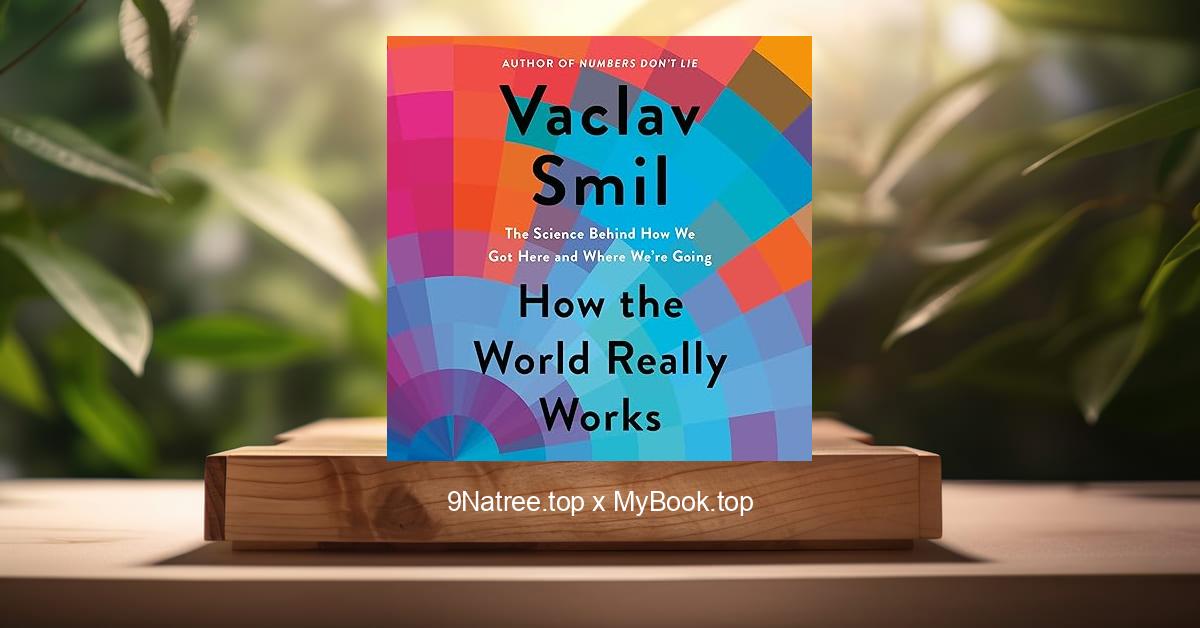Show Notes
Buy on Amazon: https://www.amazon.com/dp/B00546P9IS?tag=9natree-20
Read more: https://mybook.top/read/B00546P9IS/
#innovation #failure #adaptation #experimentation #resilience #complexproblems #feedbackloops
These are takeaways from this book.
Firstly, The Importance of Experimentation, Harford emphasizes that experimentation is not just about trying new things for the sake of novelty, but it is a vital process for discovering what works and what doesn't in any given context. By examining case studies from the development of the Spitfire fighter plane in World War II to the trial-and-error method behind the creation of the Google search algorithm, Harford demonstrates how experiments, no matter how small or seemingly insignificant, can lead to breakthrough innovations and solutions. He argues that without the willingness to experiment and accept the potential for failure, progress would be severely limited. This section of the book underscores the necessity of creating environments, whether in businesses or societies, where experimentation is encouraged and failure is seen not as a setback but as a step towards discovery.
Secondly, Feedback and Adaptation, Harford asserts the critical role of feedback in the adaptation process. Once experiments are undertaken, it is through feedback that individuals and organizations can learn from their failures and successes. Harford draws on examples from the Vietnam War, comparing it to the adaptive strategies employed by insurgents in Iraq to illustrate how feedback loops have significant impacts on outcomes. Moreover, he explores how companies like Pixar have institutionalized feedback into their culture, enabling them to produce hit after hit. This chapter highlights that the key to successful adaptation lies in not just collecting feedback but in being open and responsive to it, allowing for continuous improvement and the ability to pivot strategies in accordance with changing circumstances.
Thirdly, The Complexity of Problems, Tim Harford delves into the intricacies of solving complex problems in this segment, advocating for a multi-faceted approach rather than seeking simple, one-size-fits-all solutions. He introduces the concept of 'complex adaptive systems' through case studies that span from the collapse of Lehman Brothers to climate change initiatives. Harford argues that many of today's challenges are too complex to be solved by any single entity or through straightforward solutions. Instead, he proposes that recognizing the interconnectivity of factors at play and approaching problems from multiple angles is essential. Harford makes a compelling case for embracing complexity rather than oversimplifying issues, suggesting that a nuanced understanding of problems can lead to more effective and sustainable solutions.
Fourthly, Decentralization and Empowerment, In this part of 'Adapt', Harford explores the power of decentralization and empowerment, particularly in organizational settings. He uses the U.S. Marine Corps as a prime example of how decentralizing decision-making can lead to greater adaptability and success on the battlefield. Furthermore, Harford discusses how companies like Google have benefited from empowering employees to pursue their ideas, leading to innovative products and services. This section emphasizes that by decentralizing authority and empowering individuals at all levels, organizations can become more nimble, adaptive, and capable of tackling challenges in innovative ways. Harford argues that in complex systems, control is less effective than empowerment, highlighting the need for adaptive leadership in the face of change.
Lastly, The Role of Narrative in Adaptation, Harford introduces the concept of narrative as a tool for adaptation, arguing that the stories we tell ourselves and others can either foster or hinder our ability to adapt to change. He examines how narrative has been used in various contexts, from political campaigns to corporate branding, to shape perceptions and influence behaviors. Harford underscores the dual-edged nature of narrative, showing how it can be used to mobilize action towards positive outcomes or, conversely, entrench failure. Through this discussion, Harford invites readers to consider how the narratives they subscribe to impact their ability to face challenges and adapt. This segment of the book illuminates the significant role that narrative plays in shaping our responses to failure and our capacity for resilience and change.
In conclusion, Tim Harford's 'Adapt: Why Success Always Starts with Failure' is a must-read for innovators, business leaders, policy makers, and anyone interested in personal development. Its central message, that failure is not just an inevitable part of success but a necessary stepping stone, has profound implications for how we approach challenges and opportunities. Harford's blend of storytelling, economic theory, and practical insights encourages readers to embrace experimentation, accept failure, and learn from it in order to adapt and thrive in an ever-changing world. This book challenges the perfectionist mindset, offering a refreshing perspective on the value of setbacks and the importance of resilience. By applying the principles outlined in 'Adapt', individuals and organizations can develop the flexibility and innovation needed to navigate complexities and emerge stronger from the trials of life and business.
![[Review] Adapt: Why Success Always Starts with Failure (Tim Harford) Summarized](https://episodes.castos.com/660078c6833215-59505987/images/1699862/c1a-085k3-2o11dq9ws6xd-9ti9mb.jpg)




